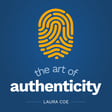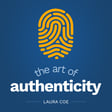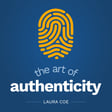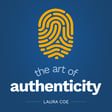
Bryan Reeves: Choose Her Every Day or (Leave Her)
Bryan Reeves, relationship ninja, with 30 Million Readers has released his second book, Choose Her Every Day or (Leave Her), comes on the show to talk about relationships. We go over a few of the essays in his new book, which includes 7 years of articles from his experiences, to help you learn how to improve your relationships.
In 2010, at age 36, while going through yet another agonizing breakup, Bryan had an epiphany: He knew nothing useful about how to do intimate relationship well. In that moment of painful realization he vowed to never suck at intimacy again. Thus began an extraordinary journey into the realms of love, sex, relationship. In summer 2015, with already legions of readers all over the world following his adventures, his essay “Choose Her Every Day (Or Leave Her)” went viral, exploding to over a million readers daily. This book (which includes that essay) is Bryan’s anthology of stories, insights, practical tools, and secrets (that should never be secrets!) to help guide you on your own journey to thriving in love and intimacy.
His Mission: To Serve the World one Awakened Man, one Illuminated Woman, one Thriving Relationship at a Time.



